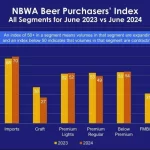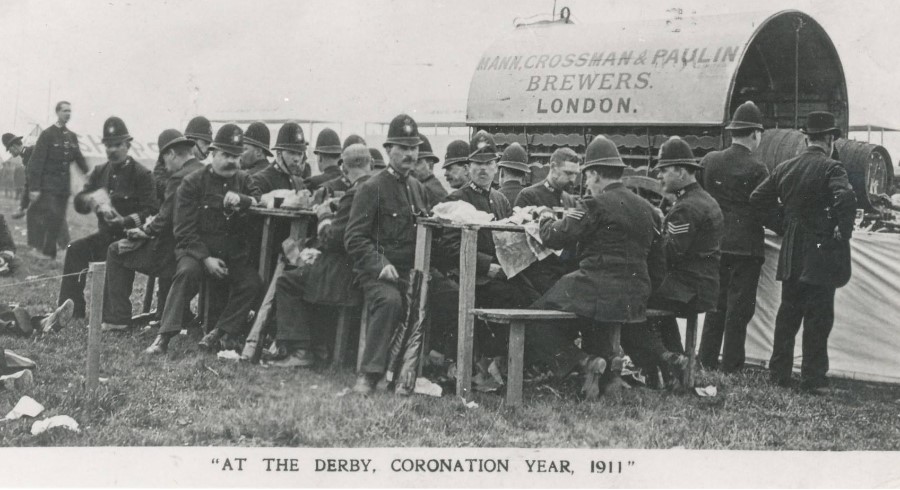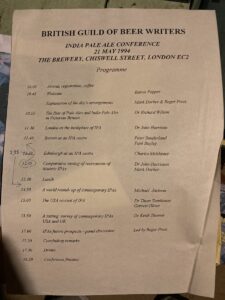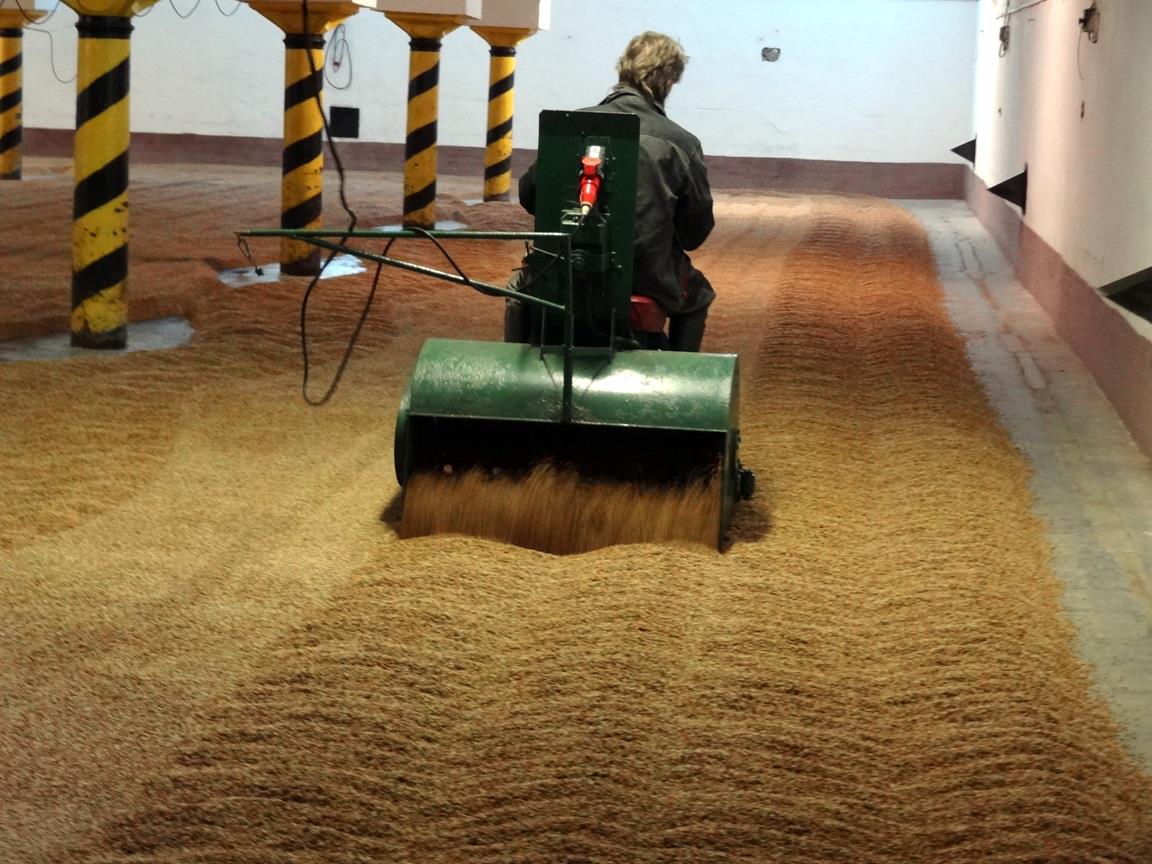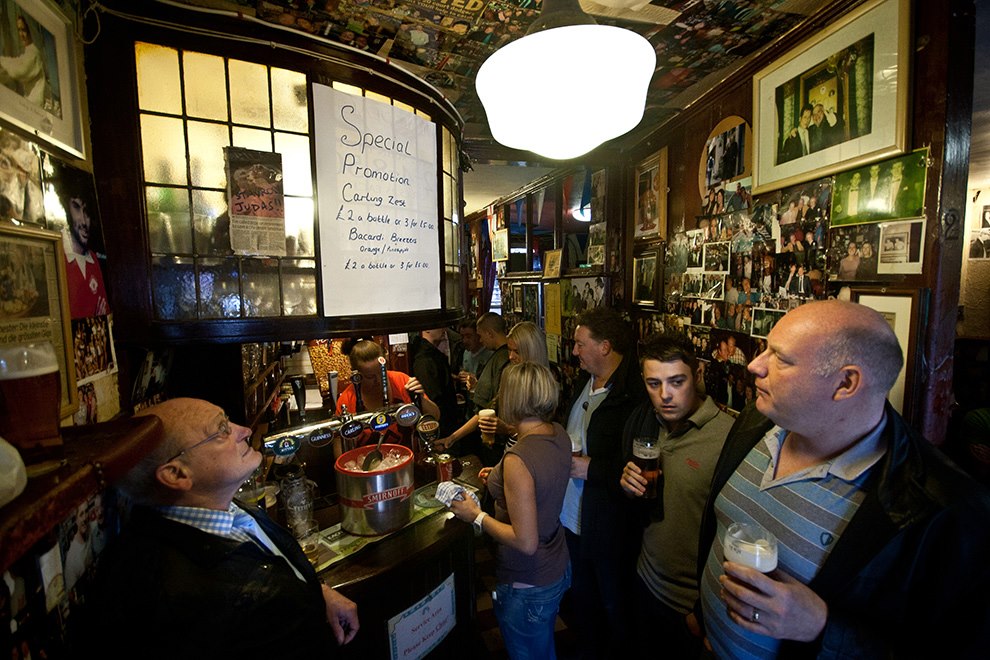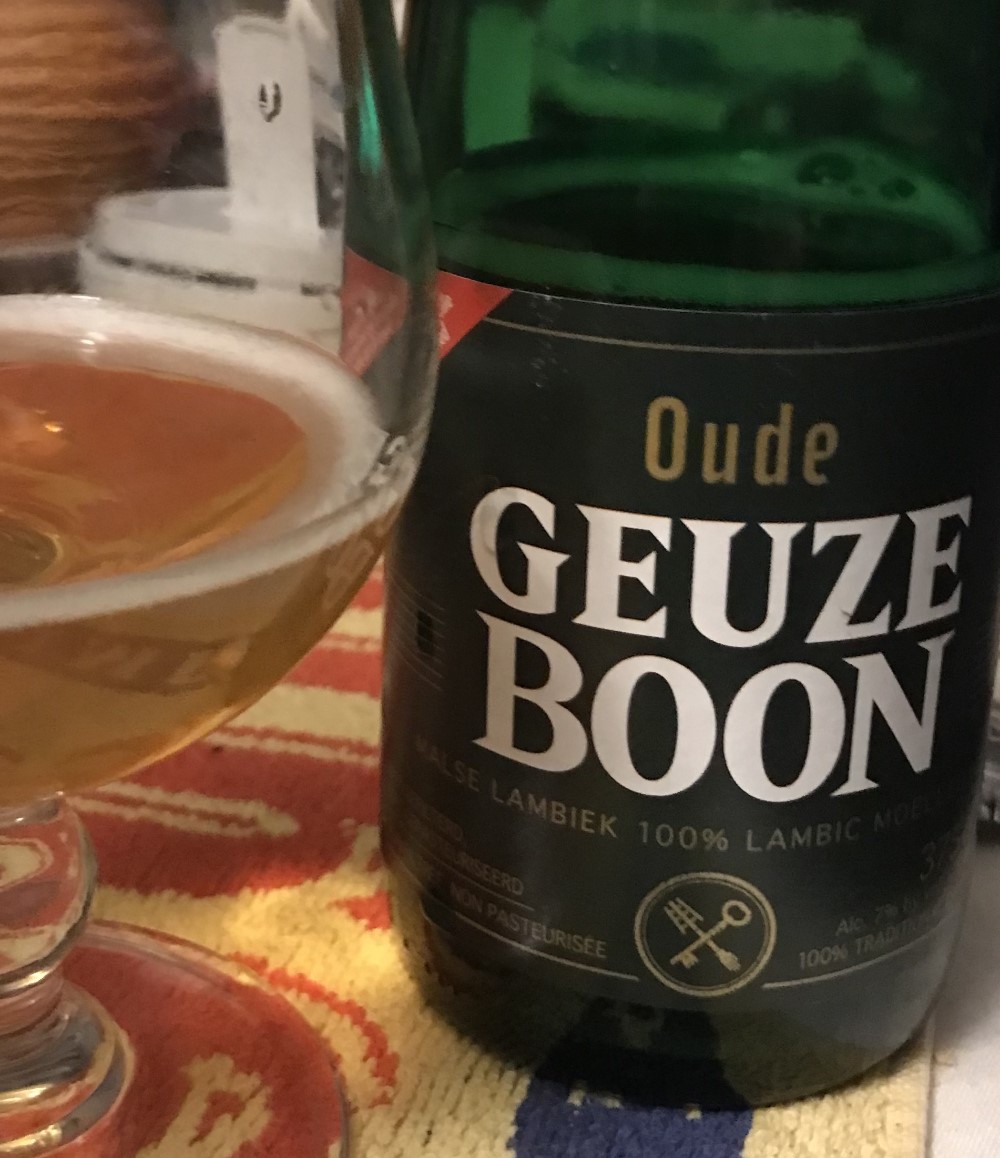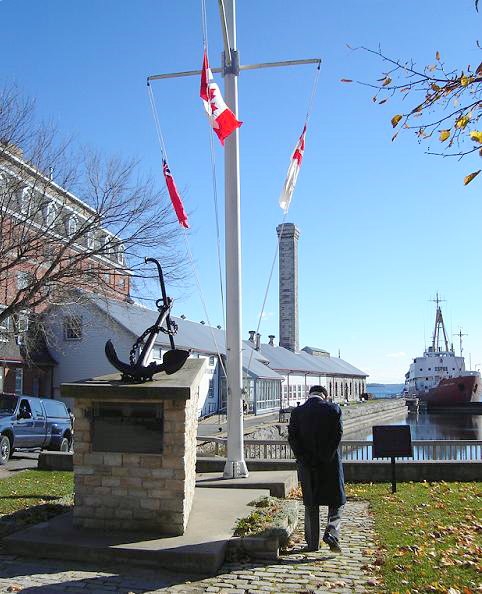 When last we met, I was happy as anything, wandering around Montreal on a few days away. That’s so last week. The first week of vacation. Then I came home to folk building the new fence and the related 24 foot tall tree removal on my side of the line. The fencing guys did a couple of the main branches with their power saws but I’m doing the rest by hand, sorting* and hauling most of the stuff away. Which is why this week’s beery news notes are brought to you by my Japanese pruning saw. It is the only thing I have ever bought which has each and every promised attribute. Forget that claim that beer makes you feel exactly like you wanted to feel like just before you had that beer. This beauty sits neatly in the cut, eats into the wood in both directions, stays sharp, creates minimal blisters. Japanese pruning saws. Get yours today.
When last we met, I was happy as anything, wandering around Montreal on a few days away. That’s so last week. The first week of vacation. Then I came home to folk building the new fence and the related 24 foot tall tree removal on my side of the line. The fencing guys did a couple of the main branches with their power saws but I’m doing the rest by hand, sorting* and hauling most of the stuff away. Which is why this week’s beery news notes are brought to you by my Japanese pruning saw. It is the only thing I have ever bought which has each and every promised attribute. Forget that claim that beer makes you feel exactly like you wanted to feel like just before you had that beer. This beauty sits neatly in the cut, eats into the wood in both directions, stays sharp, creates minimal blisters. Japanese pruning saws. Get yours today.
First off, I am really grateful for Stephanie Grant‘s piece on her changing relationship with alcohol. She puts things so clearly, things that I have thought about myself and others over the years – especially this bit:
I haven’t dived into non-alcohol beers or mocktails, and I’m not sure that I will. I’m not someone who necessarily needs to replace beer with a non-alcoholic version. I know that there are some great options out there today, but when I am abstaining from alcohol, I don’t really feel the need to replace it with something that is similar to alcohol. I also feel the same way about meat substitutes. If I want to eat meat, I will eat meat, but if I want something vegetarian, I don’t necessarily need a meat-like substitute… if I really want a beer during the week, I have no problem drinking a beer and have no trouble sticking to one. That level of flexibility feels good to me and has made this new adventure feel even more doable…. It helps that I know other people who work in beer and the beverage industry as a whole that have also cut back on their drinking. I look to them for inspiration. Because of them, I know it’s possible.
For as long as I have been writing about beer my interest in drinking a lot of beer has slowly slipped away… well, maybe let’s say it has reduced. (Apparently, not unlike Ireland.) For a while now, I’ve been a none or maybe one with meals or maybe after mowing sorta person now. I know, sounds like Old Man Day Napper. But that’s now due, you know, to hauling the boughs and branches to the yard waste depot.
Yet… when I do have a drink, I like to drink the swell stuff. So what are you drinking when in Lisbon? Not what you expect you might be, if Jason Wilson is right:
My choice for the first stop of the evening would be Quattro Teste, one of the best cocktail bars I’ve visited in any city. Run by Alf del Portillo, from Spain’s Basque Country, and Marta Premoli, from Lombardia, Italy, at Quattro Teste you can start with a shot of cider straight from the barrel, Basque style. Then move on to Alf’s take on the low-brow classic kalimotxo. It’s usually just a mix of red wine and Coke, but his version has a healthy pour of Amaro Lucano and a splash of Branca Menta to make it a kalimotxo revelation.
I am not sure my meagre daily ration would go in the direction of a kalimotxo but, go ahead, make the case for it. Jeff made the case, unpacking his thoughts on our conversation about the economics of local v regional noted last week as Question #7:
The regional breweries can’t compete with the giants on price, and lose the advantage of “local” affection the further they try to send beer. I recently got to see the barrelage of those regional breweries, and it is mostly sinking as this dynamic squeezes them more. And yet if you zoom in a bit, something interesting is going on as well. If you surveyed the beer cooler at the local grocery store in different regions (not just the U.S., but anywhere), you’d see different retail space given to local, regional, and national brands. Some places I visit have mostly national brands and a sad little pocket of local brands. In other places, the reverse is true.
There was also follow up over at their Patreon-based footnotes this week, when Boak and Bailey (Hello Jess and Ray!) looked for just the right word:
The idea of national-regional-local that Jeff Alworth writes about, after a discussion with Alan McLeod (hello, Alan!) feels like an important one. We look here at breweries like Butcombe, which are definitely tied to the West Country, but which don’t feel especially… loyal? Is that the word? They’re not national, exactly, but they’re too big, too remote, and too slick, to feel quite part of the scene. In Bristol, local means from the city. And ideally from the neighbourhood. Somerset and Gloucestershire too, at a push. We need to think about this some more.
I like that reference to “the scene.” A scene is something to which you can have personal affinity. My scene, for example, for a long time pre-pandemic extended much more to the south into central New York than to Toronto to my west. It is about identity as much as anything but there is a clear tension between the economics and the identification with regionality. Put it this way. I support local breweries as much as I do because I can drive to them all. That is a distinct relationship where the economics and identity of local might look like loyal but perhaps it is only practical. At the regional level one needs to make more of an effort, both the brewer and buyer. I probably put a premium on spotting a Great Lakes zone beer. National craft? Might as well be ketchup. I’ll buy it but mainly on based on the price with hard eye on the best before date.
On the subject of scene, it has many facets. We see that in the piece Laura Hadland had published in What’s Brewing which explored the history of beer serving measurements below the pint. It illustrated the hazards to be encountered in place to plane and time to time – as illustrated by the “schooner”:
The two-third pint measure was not legally recognised as a specified measure until October 2011. Despite this late introduction, the measure was not new. A publican in Greenock, Scotland, is recorded as testing the market for the schooner – a glass of American invention – in the 1870s. His tuppeny drink was described by locals as the Wee Pint and seems to have met with relative success, spreading to other venues in the area. The two-third schooner for beer is not to be confused with the sherry glass of the same name – a tall, waisted 3.5oz glass that was popularised in the UK in the 1960s, alongside its smaller cousin, the clipper. To add another layer of bemusement, a Canadian beer schooner is a 32oz super-sized affair!
I like that, the “wee pint” – basically the size you get in the US now when you ask for a pint. What else is going on? Pete Brown posted his take on George Orwell’s perfect urban pub “Moon Under Water” but with the perfect English country pub in mind:
There’s a big open fire at one end of the room. In winter, you have to be here at opening time to claim the table next to it. There’s also a large, shiny-seated wooden chair opposite. It’s the kind of chair you don’t sit in unless you’ve been drinking here since the pub was built. The walls and ceilings are decorated with random stuff – nothing as obvious as horse brasses or old black-and-white photos of the pub. A lot of the décor relates to the name of the pub (which isn’t really the Old Stone House.) But on top of that (sometimes literally) there’s a collection of old scythes. A bowsaw. A 1930s policeman’s helmet. A case full of arrows.
And… wait for it. There is a twist. By the way, R+J of B+B may have found their own new perfect pub even though the first dealt with some well-founded doubts:
…people who are much more clued into Bristol pub gossip than us told us they’d heard Sam Gregory, landlord of The Bank Tavern, was interested in taking it on. You might have heard of The Bank, even if you don’t know Bristol: it’s the one with the four-year waiting list for reservations for Sunday lunch. We filed this news under “We’ll believe it when we see it”. So much can go wrong with plans to revive pubs, as we’ve seen with successive attempts to take on The Rhubarb.
Also extolling the ideal pub this week was ATJ whose A Pub For All Seasons comes out soon. He summarized the goal of the book:
Deep breath, then: A Pub For All Seasons is a narrative non-fiction travel book about my journey through the UK over the four seasons in search of how pubs change organically, unconsciously, without fanfare, almost with nobody noticing. It is about how pubs echo the seasonal drinks and dishes we fancy throughout the year — as they change a pub also changes.
Speaking of which, I received my copy of Martyn’s new book, a study of brewing history through 80 beers from around the world. Very oddly, exactly 2.5% of the beers discussed were from my homeland, the Canadian Maritimes. The entry on Keith’s IPA is (shall we say) kind but does highlight, as do a number of others, the imperial reach of British brewing. My first skim though did raise one question. Has anyone actually seen that receipe for great-grandpaw’s beer that was the foundation for Sam Adams Boston Lager?
Other than witnessing the praising of glitter beer well after it “glit-ted” its last “-ter“**, I was interested in the thoughts Doug Veliky shared on the effect of Hazy with about a decade’s reflection – and expectually its effects on other style as well as style itself:
The term “American IPA” appears to mean little that can be trusted anymore, at least consistently and nationally for someone traveling, and might as well be shelved completely by the US brewing scene. It’s turned into a filler word to show more intention to the style, but that intention is now be muddy and misleading. The reason I used to like the descriptor is because it could serve as a way to communicate clear and bitter, while letting West Coast IPAs be their more specific versions, still leaving a wide range of variables to incorporate and differentiate with.
In Pellicle, Will Hawkes explored other sorts of fundamental changes in his excellent biography of an important figure in mid-1900s British brewing, Dr. Dora Kulka, and her escape from the Nazi we well as how her work in yeast biochemistry supported the early adoption of lager brewing:
Dora produced a stout (“Your vitamin stout is good,” Erna Hollitscher, to whom she sent a bottle, told her; “In spite of the protest of some English people I still don’t think it is so very different from beer!”), a pale ale and, most significantly, a lager. She probably thought little of it, but for the powers-that-be at The Hope Brewery it was like a lightbulb flickering on. Just a few years later, Claywheels Lane became the first British home of Carling Black Label, the beer that started the British lager revolution, and that has been the nation’s favourite since the early 1980s…. Hope & Anchor began making their own lager—Anchor Lager—very soon after the War ended. “Dr Kulka got us brewing a lager. She noticed Sheffield water was similar to that of Pilsen in Czechoslovakia, where her family came from, and suggested we make one. That’s what set us going.”
It will be harder to find a lager in some communities in northern Ontario now that the implications of the new beer sales in private stores are playing out:
The Beer Store has confirmed that the 8 James Bay Rd. location in Cochrane is permanently closing on Sept. 9… In Cochrane, the Alcohol and Gaming Commission of Ontario (AGCO) has approved two licences for convenience stores that will be able to sell alcohol — the Cochrane Truck Stop at 99 Hwy. 11 S., and COSTCAN Liquor at 143 Fourth St. W. Unit B. The Beer Store locations in Geraldton and Nipigon are also set to close next month. Gordon Mackenzie, a former Nipigon councillor wrote to The Beer Store president, highlighting the impacts of the closure on the community, noting his concerns that the closure will add to the long-standing issues of vacant buildings populating the downtown core and the loss of job opportunities. The community has also noted that The Beer Store is the only location to return empties to.
Note: “My bet is the price of beer will go up, especially in northern Ontario.” In suburban southern Ontario, the issues are different, as over licensing as 350 new retailers will open up in one municipality on the same day. Plus: “stores will be allowed to sell starting at 7 a.m. and up to 11 p.m., two hours earlier in the morning and later at night than the current operating hours.” Really? Pre-school beers? How long until we read the “drunk guys in grade 12 first class home room” story?
And, relatedly perhaps in terms of change, in his Hop Queries, Stan shared some news about the German hop harvest that ended up with a bit of an odd conclusion:
Each of Germany’s five hop growing regions (Hallertau is by far the largest) provided estimates as harvest began. Production in the Hallertau increased 21 percent over 2023, to 42,350 metric tons, while overall German production grew 18.8 percent to 48,964 metric tons (98.1 million pounds). Why? Yields in Germany were up 20.5 percent. Although yields in 2023 had improved on 2022’s particularly disappointing harvest, they were still below average… The overall harvest yielded about nine percent more hops than an average crop the last 10 years, which a press releases notes will be sold into a market that is “. . . oversupplied.”
“Oversupply” does no lead to cheering as it turns out. A bumper crop causes concerns in a retracting marketplace for beer.
I am sure there is a bit of a punning opportunity related to the exhuberent abundance of my week’s chores there but I am a bit too tired to try. Timber depot, yard waste yard, worn out fabric drop off, vee vee boutique and, most excitingly, the hazardous waste receiving area. Touched all the bases. So… that being the case… here are the credits, the stats the recommends and the footnotes and the many ways to find good reading about beer and similar stuff via any number of social media and other forms of comms connections.*** Want to keep up with the news before next Thursday? Check out Boak and Bailey every Saturday and Stan back each Monday… with a top drawer effort this week. Elsewhere go look at then listen to Lew’s podcast. And get your emailed issue of Episodes of my Pub Life by this year’s model citizen David Jesudason on the odd Fridays. And Phil Mellows is at the BritishBeerBreaks. Once a month, Will Hawkes issues his London Beer City newsletter and do sign up for Katie’s now revitalised and wonderful newsletter, The Gulp, too. Ben’s Beer and Badword is back with all the sweary Mary he can think of! And check out the Atlantic Canada Beer Blog‘s weekly roundup. There is new reading at The Glass which is going back to being a blog in this weeks best medium as message news. Any more? Yes! Check to see the highly recommended Beer Ladies Podcast. That’s quite good. And the BOAS podcast for the bro-ly. And the long standing Beervana podcast …except they have now stood down. Plus We Are Beer People. The Boys Are From Märzen podcast appears suspended as does BeerEdge, too. But not Ontario’s own A Quick Beer. There is more from DaftAboutCraft‘s podcast, too. All About Beer has introduced a few podcasts… but some may be losing steam… until… Lew’s interview! And there’s also The Perfect Pour. Plus follow the venerable Full Pint podcast. And the Craft Beer Channel on Youtube. The Moon Under Water… is gone which is not surprising as the ask was $10 a month. Pete Brown’s costs a fifth of that but is writing for 47 readers over there. There was also the Beer O’clock Show but that was gone after a ten year run but returned renewed and here is the link! Errr… nope, it is gone again.
*Those straight branches to the right are all around ten feet long and will be next year’s tomato poles.
**Not sure if or even how my disinterest in glitter beer translates into sexism but there you have it. Adulterations and adjuncts are simply gak.
***This week’s update on my own emotional rankings? Facebook still in first (given especially as it is focused on my 300 closest friends and family) then we have BlueSky (151) rising up to maybe… probably… likely pass Mastodon (930) in value… then the seemingly doomed trashy Twex (4,469) hovering somewhere well above my largely ignored Instagram (160), crap Threads (52) with Substack Notes (1) really dragging up the rear.







